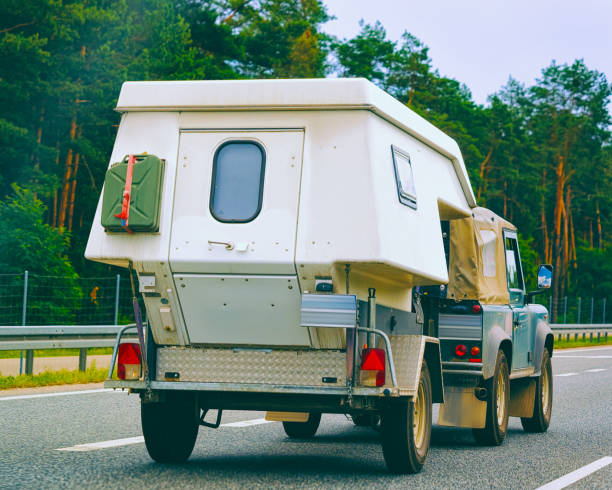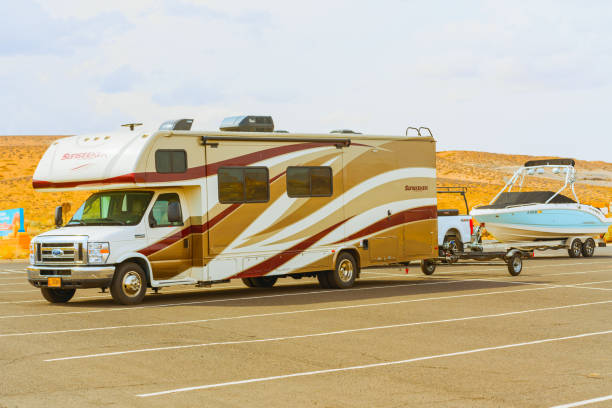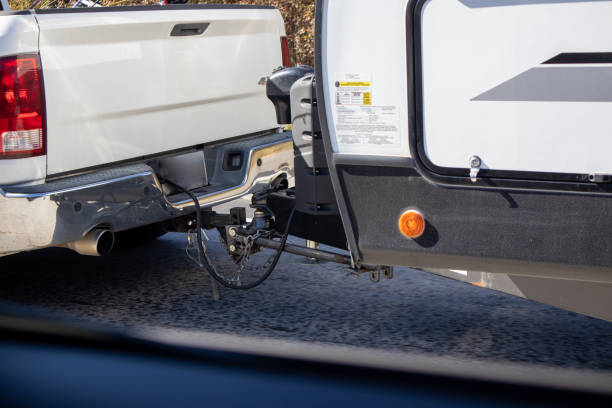Can a Class 3 hitch tow a camper? Popular Things to Dispel Before You Hitch Up
Can a Class 3 hitch tow a camper?
It is a valid concern, taking into consideration the array of campers, which starts with light teardrops and stretches to travel trailers of medium sizes. Before you start hooking whatever onto the back of your car, it is necessary to understand what your hitch is capable of accomplishing and what it is not capable of before you run into trouble or some damage to both the vehicle and the load.

This article will lead you through what a Class 3 hitch is, what type of RV campers can safely be hitched on it, and how to get your system ready in a road-friendly configuration. A weekend warrior or first-time RV roadmaster, this is the most realistic, technically competent, and sound advice you may find to successfully tow.
What is a Class 3 hitch?
Class 3 hitches are probably some of the most popular ones, and they are most commonly utilized to complete general towing (SUVs, trucks, and even some larger crossovers). Such hitches are universal in nature and are able to support medium loads, thereby being versatile in the ability to cater to various trailer types and accessories. So, can a Class 3 hitch tow a camper? It will depend on the weight of your camper, but it can in many cases. It can.
Weight Matching Camper with Hitch Capacity
This is necessary in weighing the total weight of your camper with your allowed hitch prior to towing. Contrastingly, an oversized bunkhouse model or a two-axle camper with slide-outs can weigh more than what the hitch can take. You may even want to consider a Class 4 or even a Class 5 hitch in such instances. What this precisely signifies is this: Can a Class 3 Hitch Tow a Camper? Yes, it is, on the condition that it does not attain that 6,000-pound limit by the weight of the fully loaded camper.
The vehicle towing capacity also matters.
One of the main issues that people overlook when it comes to towing is the ability of the vehicle to tow and not necessarily the towing hitch. Yes, as far as technically is concerned, but with the proviso that your car is capable of pulling also the same weight safely. Refer to your manufacturer’s specifications or owner’s manual at all times. Do not rely on the rating of the hitch by itself because the finest hitch in existence can do you no good when the engine and transmission are not up to handling such a weight.
The significance of weight and brake management and controllers
A weight distribution type of hitch is commonly added when you wish to tow at the upper range in the use of a Class 3 type of hitch. It helps in even distribution of the tongue weight to all the axles of both the vehicle and the trailer and aids in balancing the towing kit. This does not only make it more tractable but also helps in rear-end sag and swooping. Brake controllers are also necessary, especially when one is towing a camper.
They can also have electric brakes, and most travel trailers will need a controller to operate them in your vehicle as well. The fact that a Class 3 hitch can tow a camper does not mean that it should without the requisite auxiliary equipment. Protective equipment is mandatory.
Hitch inspection and quality checking of the hitch
Just because your car has a hitch does not mean that it can tow a camper. Ensure that the Class 3 hitch is professionally installed at all times and suitable to your vehicle frame. The factories may have hitches that are design-restricted on their part, especially some that are meant to be attached to bike racks or cargo carriers.
Once the aftermarket is in mind, then you have brands like CURT, Draw-Tite, and Reese hitches that possess a reputable Class 3 product. So, can a Class 3 hitch tow a camper? Sure, when installed, it will, but do not omit its build quality and installation onto your vehicle’s chassis. The proper torque, grade 8 bolts, and corrosion resistance do matter.
Insurance and legal protection
Please make sure by checking again with your laws regarding towing. Many states and provinces also require trailers over some limit of weight to have their own separate brakes, safety chains, and lighting. Conditions can also be included by the insurance companies that only tow within the manufacturers recommendations. You may also be in the wrong in an accident by overweighting your hitch beyond its capacity or by failing to pack the necessary equipment. Which, then, again, is Can a Class 3 Hitch Tow a Camper? Of course it can, as long as you are adherent to towing rules and as long as you have correct insurance coverage.
Tips to Lighten the Maintenance of Tow over a Long Period of Time
A regular checkup is necessary whenever using a Class 3 hitch to make regular towing. Check for rust, worn or bent fasteners or welds, or deformed or worn metal, especially in those places you went over road salt in the winter or in rural areas where salt water can more readily eat metal. Use hitch ball grease, tighten your bolts, and inspect electrical connections. Proper hitch is that you are not a high school kid looking through the window wondering things like, Can a Class 3 Hitch Tow a Camper? Instead, you will tell me my Class 3 hitch pulls my camper safely through the season.
Part III Conclusion: Are you fit for a Class 3 hitch, Hitch?
So, can a Class 3 hitch tow a camper? More, yes—but with very serious restrictions. The camper should fall within the range of the hitch, and the towing vehicle must be capable of supporting this load and have the right equipment, like a brake controller and weight distribution hitch. In these boxes ticked, a Class 3 hitch offers an economical and flexible solution to many of the weekend campers and travel trailers. During towing, it should not be a guessing game. A rightly installed Class 3 hitch can guarantee years of comfort and safe road trips.

FAQs
I am using a Class 3 hitch and no weight distribution system. Can I use a camper?
Yes, and this will happen when the total weight of the camper is well under the 6,000 pounds of capacity of the hitch. A weight distribution system is highly recommended in heavier trailers approaching the weight limit with an aim of improving handling and security.
How Would Overtaxing a Class 3 Hitch to Tow a Camper Work?
Failure to hitch can happen as a result of overloading or loss of control of the vehicle, and even insurance claims will be invalid. You should ensure that you land in manufacturer ratings so as to avoid safety risks. This does not mean that a Class 3 hitch can carry a camper without thoughts because it can even tow a camper.

0 Comment